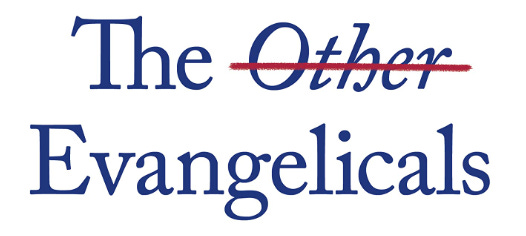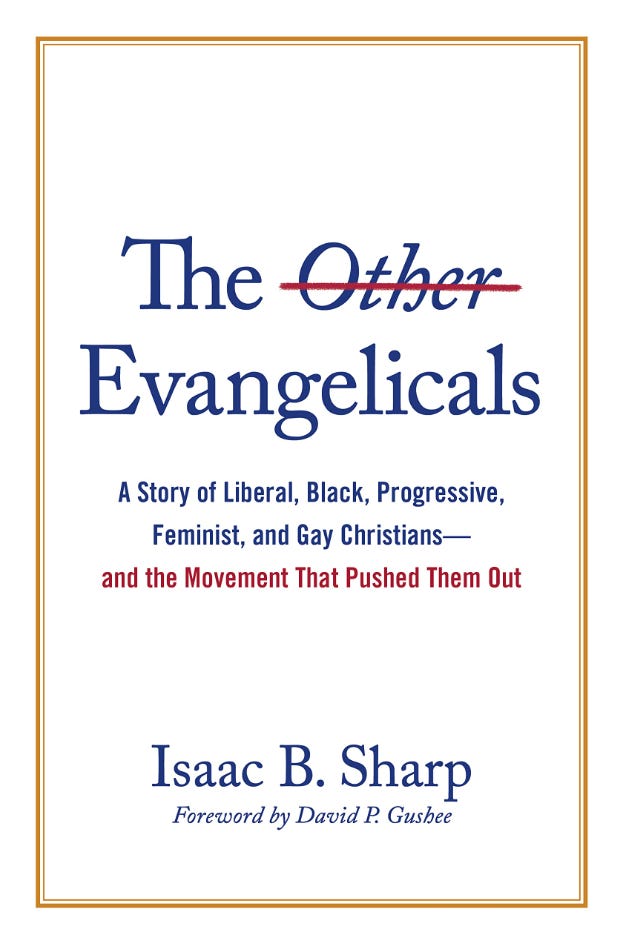The Challenge for Evangelical Progressives
A standard story goes like this: After the Scopes trial evangelicals/fundamentalists disappeared from the political scene and avoided the public forum. Until Carl FH Henry’s famous uneasy conscience book when the neoevangelicals re-engaged the public forum and then formed into a robust aligned-with-Republicans movement. Thus, they reemerged as a political force with Reagan.
Isaac B. Sharp’s new study, The Other Evangelicals, both nuances and challenges that typical story. One major theme is this: progressive evangelicals preceded the neoevangelical political engagement and then, for a variety of reasons, pushed the progressive evangelicals off the platform for not being truly evangelical.
Leading to the question: Can a card-carrying evangelical be a progressive as well?
This has been my favorite chapter in Sharp’s book because I remember so many of the names and stories and events Sharp details with splendidly clear and engaging prose. It is also my favorite because I find this discussion – can evangelicals be progressive both silly and famously so pro-American evangelical that it deserves to be immediately shuttled off the platform. Can someone ask where European evangelicals are politically? (Mostly not Republicans, in the American version, right?)
The major names are John Alexander, who published the well-known (perhaps not to you, but to me) The Other Side magazine, which took on major ethical questions and challenged traditional views and opened the door to a progressive posture for evangelicals.
Ron Sider who, because he came of age in Canada with a Mennonite heritage, had not qualms or instincts for the conservative leanings of USA’s evangelicalism. Sider was pressed into social concerns in his PhD days, and then in teaching and writing and living in community.
Jim Wallis whose name still echoed in the hallways when I entered TEDS in 1976. My first class was Synoptic Gospels; the first day a Wallis-associate filibustered in a way the syllabus of Walter Liefeld. He left class and withdrew and went to Loyola and I never heard much about him after that. But I did hear about Wallis and read his books and watched his career zoom and careen as he set up shop in DC with Sojourners magazine. It became the major progressive evangelical magazine and platform.
Progressive evangelicalism by the early 70s was a thing. Viable and vibrant and vocal. And Billy Graham was vocally supporting Richard Nixon. Progressive evangelicals were supporting McGovern, and the Sider-led movement for him flopped. But it was their first major organized effort.
Their next effort was the famous 1973 Thanksgiving-weekend “Chicago Declaration” which was a major statement about social justice by evangelical leaders. Link here.
Critics began to show up more and more, not least in letters to the editors of magazines. Gordon Clark and Francis Schaeffer were some early critics.
Then comes Sojourners, which solidified a progressive agenda in a prophetic mode of criticism both of America and American evangelicalism. In particular, it began to criticize capitalism and that turned the tide for many.
And the critics took special aim at Ron Sider’s Rich Christians in an Age of Hunger, which has now sold more than 400,000 copies. His argument was rooted in biblical texts.
Isaac Sharp puts the peak of the option of progressive evangelicalism in the early 1980s with a Jim Wallis-led resistance to the American support for the Nicaraguan Contras. So wide and deep was this resistance that it made a difference. The banners were flown under “The Witness for Peace” and the “Pledge of Resistance.”
The gatekeepers stepped in, focusing both on Wallis and Sider, and their names are:
Gary North and David Chilton who attacked Sider; Harold Lindsell who fought for free enterprise as well from the Bible; Joan Harris who routinely studied Sojourners for its leftism; and Jerry Falwell’s public statements about Wallis’ “Peace Pentecost.” Wayne Grudem has been one who has carried on this agenda.
Here were the stingers that were jabbed into the progressive evangelical movement, and these stingers have stuck because they were effective labels (and accuracy was not the point):
Socialism
Not truly evangelical.
Sharp is right when he writes “evangelicalism’s most prominent and politically conservative leaders effectively forged a kind of evangelical identity politics. “Evangelical,” in other words, ultimately became the name of an aggrieved white political interest group with a self-image as an oppressed conservative minority believed only by its countless millions of members.”
The Religious Right seized control of the word “evangelical.” To be a true evangelical for the gatekeepers meant being Republican or conservative, but clearly not left leaning or progressive.




Thanks, Scot, for this little run through some "ancient" but critical history. In the 1980s we women were also in the fray, led by Cathie Kroeger and others - as we began Christians for Biblical Equality (CBE) in 1987. A small personal detail: in 1990 I was fired from a job because I signed the CBE doc.
I have seen this at work in my own Christian journey. Came into the Church in the mid-1970's when things were about "one another"; concern for building the Kingdom on earth as in heaven for Jesus. The evangelical sector had not gone to their corners yet to duke it out. By the end of the 1980's, all that was gone. The "aha" people had come out to try to pigeon hole everyone they suspected of not supporting a very narrow agenda; "Aha, you are this, you are that! You are not one of us. You are not a Christian." That and the fortress (to become the silo") mentality took over within churches themselves. "We are outnumbered, the secular humanists are coming to take over!" The fight was on to bring Christ into government, back into schools, back into everyday American life. Only, it backfired. Capitalism in all its ugly forms invaded the church and turned it's pastors into "leaders", (executives, CEO's, and tyrants) and the church of Jesus into a money making enterprise. Now, if you don't have a tyrant in charge and a ton of money, you aren't blessed of God.